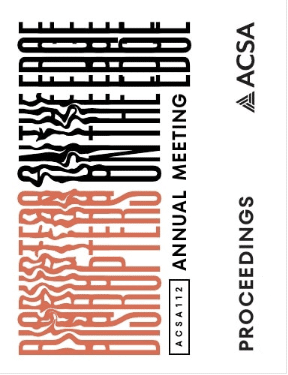Author(s): Anda French & Jenny French
Autoethnography challenges positivistic research methodologies and assumptions of researcher neutrality. It embraces uncertainty, messiness, and emotion, and has the potential to acknowledge the interconnectedness of architecture with social, economic, and political realities. Drawing from Elizabeth Ettorre’s Autoethnography as Feminist Practice: Sensitizing the Feminist “I”, this paper suggests that through autoethnographic processes, architects can resist the urge to quantify and categorize, and instead embrace the narrative-building potential of personal revelations and vulnerability. The paper acknowledges the safety and familiarity that static roles provide but argues that these roles hinder progress. It emphasizes the importance of dismantling the myth of the singular genius and instead advocates for an understanding of architecture as a collaborative endeavor. By being reflexive about their shifting status and relational positions, architects and architectural educators can create space for diverse voices and expertise to contribute to the design and production process. Drawing on examples from contemporary architectural practices, and adjacent fields, such as product design and cultural geography, the paper demonstrates the potential power of autoethnography. It emphasizes the importance of situated perspectives, connecting personal experiences to larger social contexts. Prompted by Etorre, by occupying the space of the “in-between” and acknowledging the “personal is political,” architects can foster connection, empathy, and collective meaning-making. Autoethnography serves as a device for architects to occupy the space of an “inside-outsider,” enabling the exploration of alternative practice and pedagogical models. By engaging in self-reflection, architects can cultivate mutual empathy and construct shared narratives, ultimately redefining the role of the architect in collaborative processes, unlocking new possibilities for collaboration, and transforming the understanding of authorship.
https://doi.org/10.35483/ACSA.AM.112.60
Volume Editors
Germane Barnes & Blair Satterfield
ISBN
978-1-944214-45-6

 Study Architecture
Study Architecture  ProPEL
ProPEL 
